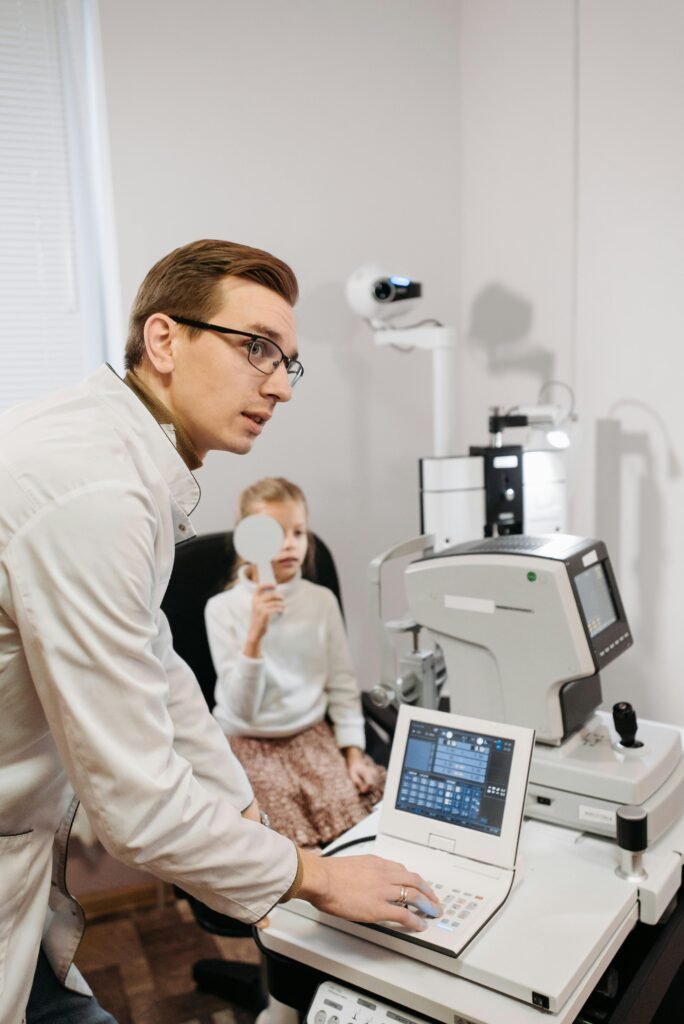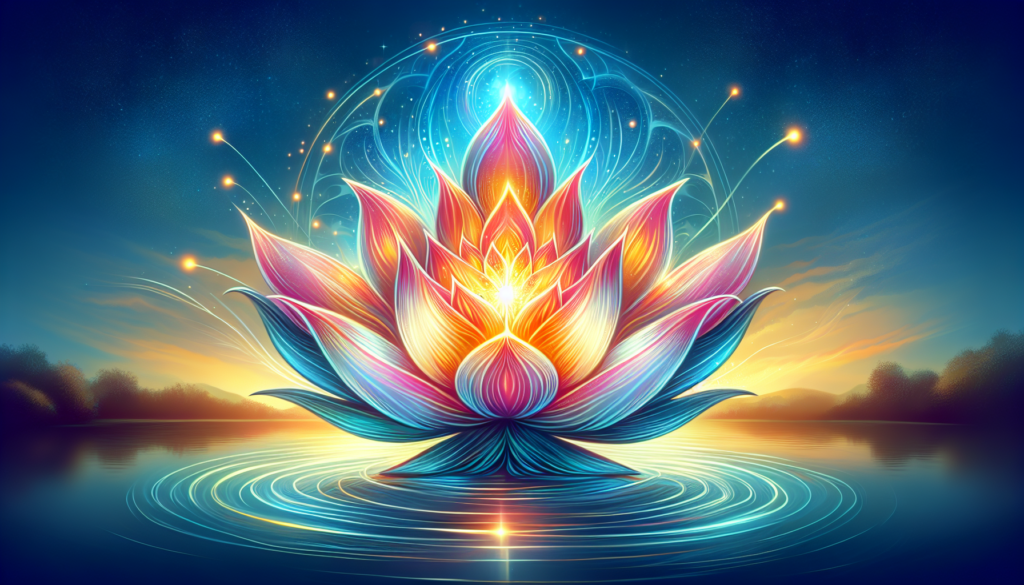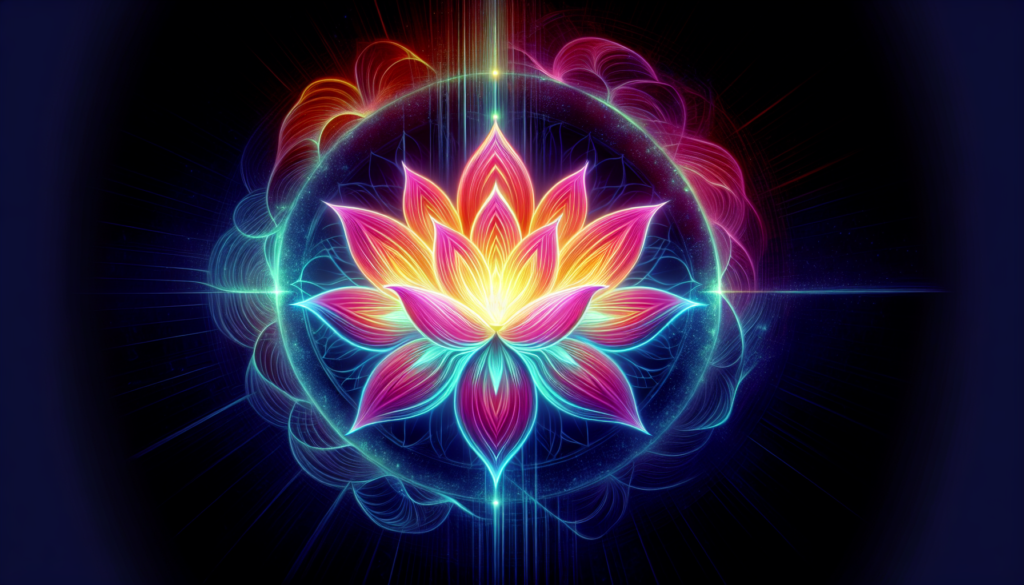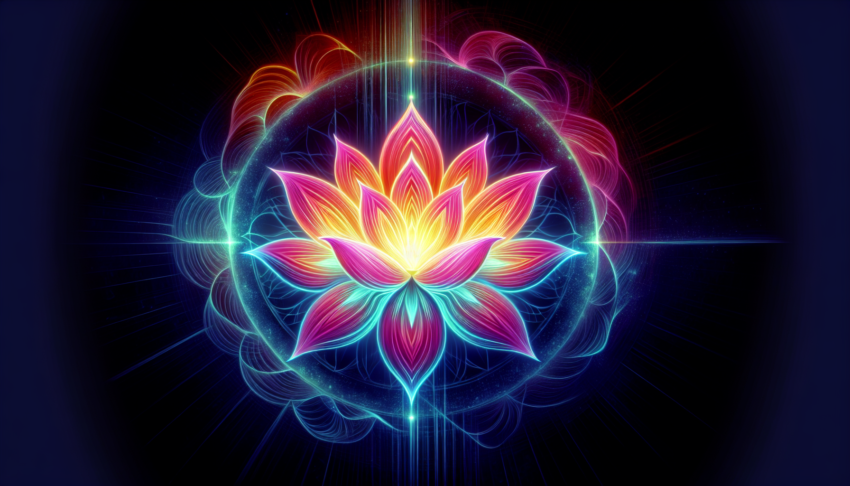Have you ever wondered how energy medicine can positively impact your overall well-being? Energy medicine is a fascinating field that focuses on the subtle energy systems of the body and how they influence our health and vitality. By utilizing various techniques and modalities, energy medicine aims to balance and restore the flow of energy, promoting optimal physical, emotional, and spiritual health. In this article, we will explore the ways in which energy medicine contributes to holistic well-being, unveiling its potential to transform and enhance every aspect of your life. So, get ready to embark on a journey of self-discovery and inner healing as we dive into the world of energy medicine.
Understanding Energy Medicine
Energy medicine is a holistic approach to healing that recognizes the vital role energy plays in our overall well-being. It is based on the principle that our bodies are not only composed of physical matter, but also energy. Understanding and harnessing this energy can lead to greater harmony and balance within the body, mind, and spirit.
Defining Energy Medicine
Energy medicine refers to the use of various techniques and practices that work with the body’s energy systems to promote healing and facilitate well-being. Rather than solely focusing on physical symptoms, energy medicine takes into account the energetic imbalances that may be contributing to an individual’s health issues. By addressing these imbalances and restoring the flow of energy, energy medicine aims to support the body in its natural healing processes.
Historical Background
The concept of energy as a healing modality can be traced back thousands of years across different cultures and civilizations. Ancient practices such as acupuncture, Ayurveda, and Reiki all recognize the importance of energy in maintaining health and well-being. These practices have been passed down through generations and continue to be utilized today, demonstrating the enduring relevance of energy medicine throughout history.
The Concept of Energy in Holistic Healing
Energy, in the context of holistic healing, refers to the subtle life force that flows through our bodies. This energy is often referred to as Qi, Prana, or vital force. It is believed to be the foundation of our physical, mental, and emotional well-being. When this energy becomes stagnant or imbalanced, it can manifest as physical pain, illness, or emotional distress. Energy medicine aims to restore balance and flow to the body’s energy systems, allowing for optimal health and well-being.
Principles of Energy Medicine
The Body as Energy System
In energy medicine, the body is viewed as an interconnected and intricate energy system. It is composed of different energy centers, known as chakras, and energy pathways, called meridians. These energy systems are responsible for the flow of energy throughout the body, influencing every aspect of our physical, emotional, and mental well-being.
Energy Channels and Meridians
Energy channels, or meridians, are pathways through which energy flows in the body. According to traditional Chinese medicine, there are twelve major meridians that correspond to specific organs and systems. Blockages or disruptions in these meridians can lead to imbalances and health issues. Energy medicine techniques, such as acupuncture and acupressure, aim to clear these blockages and restore the smooth flow of energy.
Balance and Flow of Energy
Balance and flow are essential for maintaining optimal health. When energy becomes stagnant or depleted in certain areas of the body, it can result in physical or emotional symptoms. Energy medicine seeks to address these imbalances by identifying areas of excess or deficiency and using various techniques to restore equilibrium. By promoting the free flow of energy, the body can function at its best and heal itself more effectively.
Biofields and Electromagnetic Energy
Energy medicine acknowledges that our bodies are surrounded by biofields, subtle energy fields that extend beyond the physical body. These biofields are created by the electromagnetic energy generated by our cells, tissues, and organs. The balance and coherence of these biofields are essential for overall health and well-being. Energy medicine techniques, such as Reiki and healing touch, work to enhance and harmonize the biofield, supporting the body’s natural healing abilities.

Role of Energy Medicine in Holistic Well-being
Complementary Approach to Conventional Medicine
Energy medicine is often used as a complementary approach alongside conventional medical treatments. It recognizes that the body has innate healing abilities and seeks to support and enhance these abilities through the use of energy-based techniques. By addressing the energetic imbalances underlying health conditions, energy medicine can work synergistically with conventional medicine to promote holistic well-being.
Restoring and Maintaining Vital Energy
One of the primary goals of energy medicine is to restore and maintain vital energy within the body. When energy becomes depleted or imbalanced, it can lead to fatigue, illness, and a diminished sense of well-being. Energy medicine techniques, such as acupuncture and chakra balancing, aim to replenish and optimize the flow of energy, allowing individuals to experience increased vitality and resilience.
Stimulating the Body’s Natural Healing Abilities
Energy medicine recognizes that the body has an innate capacity to heal itself. By working with the body’s energy systems, energy medicine techniques can stimulate and enhance the body’s natural healing abilities. This can lead to improved recovery times, reduced pain, and a strengthened immune system. Energy medicine also promotes self-awareness and self-empowerment, encouraging individuals to take an active role in their healing journey.
Promoting Emotional and Mental Wellness
Energy imbalances not only impact physical health but also affect our emotional and mental well-being. Energy medicine techniques, such as energy psychology, aim to address and release emotional blockages that may be contributing to stress, anxiety, or mood disorders. By restoring balance in the energy system, energy medicine can promote emotional resilience, mental clarity, and overall psychological well-being.
Techniques and Modalities of Energy Medicine
Acupuncture and Acupressure
Acupuncture and acupressure are ancient practices rooted in traditional Chinese medicine. Both techniques involve stimulating specific points along the body’s meridians to restore balance and promote healing. Acupuncture utilizes thin needles, while acupressure applies pressure with fingers or hands. These techniques are used to address a wide range of physical and emotional conditions, such as pain, digestive disorders, and stress.
Reiki and Healing Touch
Reiki and healing touch are energy-based therapies that involve the channeling of universal life force energy through the practitioner’s hands. These techniques aim to remove energy blockages, balance energy centers, and promote relaxation and healing. Reiki and healing touch have been shown to reduce pain, anxiety, and fatigue, while also supporting emotional well-being and spiritual growth.
Chakra Balancing
Chakras are energy centers located along the body’s central energy channel. Each chakra corresponds to different aspects of our physical, emotional, and spiritual well-being. Chakra balancing involves the use of various techniques, such as meditation, sound therapy, and energy work, to restore balance and harmony to the chakras. By clearing blockages and facilitating the flow of energy, chakra balancing can help optimize overall health and well-being.
Crystal Therapy
Crystal therapy harnesses the energetic properties of crystals and gemstones to promote healing and balance. Each crystal has unique vibrational frequencies that interact with the body’s energy field. By placing crystals on specific areas of the body or using them in meditation, crystal therapy aims to harmonize energy, alleviate physical and emotional imbalances, and enhance overall well-being.
Sound Healing
Sound has a profound impact on our energetic and physical bodies. Sound healing utilizes specific frequencies, vibrations, and rhythms to restore balance and promote healing. Techniques such as chanting, singing bowls, and tuning forks are used to resonate with the body’s energy, releasing stagnant or blocked energy and bringing about a state of deep relaxation and harmony.
Qigong and Tai Chi
Qigong and Tai Chi are ancient practices that combine movement, breathwork, and visualization to cultivate and balance energy. These practices help to strengthen the body’s energy system, promote circulation, and enhance overall vitality. Regular practice of Qigong and Tai Chi can improve physical health, reduce stress, and foster a sense of inner peace and harmony.
Energy Psychology
Energy psychology is a field that combines traditional psychology with energy-based techniques. It recognizes the interplay between emotions, thoughts, and energy systems in shaping our overall well-being. Techniques such as Emotional Freedom Technique (EFT) and Tapas Acupressure Technique (TAT) are used to address emotional imbalances, trauma, phobias, and limiting beliefs by tapping into the body’s energy system.

Scientific Support and Criticisms
Research on Energy Medicine
While the scientific understanding and acceptance of energy medicine are still developing, there is a growing body of research that supports its effectiveness. Studies have shown positive outcomes in areas such as pain management, stress reduction, and improving quality of life. Research is also exploring the physiological mechanisms through which energy medicine techniques may influence the body’s energy systems.
Evidence of Efficacy
Many individuals who have experienced energy medicine therapies report positive results, including reduced pain, improved sleep, increased energy levels, and enhanced emotional well-being. The anecdotal evidence, combined with emerging research, suggests that energy medicine can be a valuable tool for supporting holistic well-being.
Critiques and Skepticism
Critics of energy medicine often raise concerns about the lack of scientific evidence and the potential for unscrupulous practices. Some argue that the perceived benefits of energy medicine may be attributed to a placebo effect or the therapeutic relationship between practitioner and client. Skeptics also question the mechanisms through which energy medicine works and the reliance on subjective experiences as evidence.
Applications of Energy Medicine
Physical Health Conditions
Energy medicine can be applied to a wide range of physical health conditions. Whether it is used as a complementary approach or a standalone therapy, energy medicine techniques can help alleviate symptoms, support the body’s healing process, and enhance overall well-being. Common conditions that may benefit from energy medicine include chronic pain, migraines, digestive disorders, and immune system imbalances.
Chronic Pain Management
Chronic pain is a complex condition that can significantly impact one’s quality of life. Energy medicine techniques, such as acupuncture, acupressure, and Reiki, have shown promise in reducing pain levels and improving pain management strategies. By addressing both the physical and energetic aspects of pain, energy medicine can provide relief and support individuals in their journey toward pain-free living.
Stress Reduction and Relaxation
Stress is a common and pervasive issue in today’s fast-paced world. Energy medicine offers effective tools for stress reduction and relaxation. Techniques such as Reiki, meditation, and sound healing can help release tension, calm the nervous system, and restore balance to the body’s energy systems. By reducing stress levels, energy medicine contributes to overall well-being and fosters a greater sense of calm and resilience.
Mental and Emotional Disorders
Energy imbalances can contribute to the development and exacerbation of mental and emotional disorders. Energy medicine techniques, such as energy psychology and chakra balancing, can be effective in addressing these imbalances and supporting emotional well-being. By promoting the flow of energy and releasing emotional blockages, energy medicine can provide individuals with tools to manage anxiety, depression, trauma, and other mental health concerns.
Improvement in Sleep and Energy Levels
Sleep disturbances and low energy levels can have a significant impact on one’s quality of life. Energy medicine techniques, such as acupuncture, Reiki, and crystal therapy, can help rebalance the body’s energy systems, promoting restful sleep and increased vitality. By addressing the underlying energy imbalances, energy medicine enhances the body’s natural rhythms and supports optimal sleep and energy levels.
Enhancing Overall Well-being and Quality of Life
Energy medicine contributes to overall well-being by recognizing the interconnectedness of physical, emotional, and spiritual aspects of health. By promoting balance, flow, and harmony within the body’s energy systems, energy medicine optimizes health, resilience, and quality of life. It cultivates an empowered and holistic approach to well-being, allowing individuals to thrive in all areas of their lives.

Integration with Other Holistic Practices
Integrative Medicine
Integrative medicine is an approach that combines conventional medical treatments with complementary and alternative therapies. Energy medicine aligns naturally with this integrative model, as it addresses the energetic imbalances underlying health conditions. By integrating energy medicine techniques alongside conventional treatments, individuals can receive a comprehensive and holistic approach to their health, optimizing outcomes and promoting well-being.
Mind-Body Medicine
Mind-body medicine recognizes the intricate connection between mental, emotional, and physical well-being. Energy medicine techniques complement this approach by promoting the balance and flow of energy, which in turn supports the mind-body connection. By addressing energetic imbalances and supporting the body’s natural healing abilities, energy medicine enhances the effectiveness of mind-body practices such as meditation, yoga, and mindfulness.
Alternative and Complementary Therapies
Energy medicine is often categorized as an alternative or complementary therapy due to its holistic nature. It can be used alongside other complementary therapies, such as herbal medicine, massage, and aromatherapy, to support overall well-being. Through the integration of diverse complementary modalities, individuals can tailor their healing journey to meet their unique needs, preferences, and goals.
Energy Medicine and Self-care
Empowerment and Active Role in Healing
Energy medicine empowers individuals to take an active role in their healing process. By understanding their own energetic imbalances and learning self-care techniques, individuals can support their well-being on a daily basis. Energy medicine encourages self-empowerment, self-awareness, and personal responsibility, enabling individuals to actively participate in their own healing journey.
Daily Practices and Self-Healing Techniques
Energy medicine encompasses a wide range of daily practices and self-healing techniques that individuals can incorporate into their routine. These practices may include meditation, breathwork, visualization, and self-massage. By engaging in these techniques regularly, individuals can enhance their energy flow, clear blockages, and promote overall vitality and well-being.
Managing Personal Energy
Managing personal energy is fundamental to maintaining optimal well-being. Energy medicine teaches individuals techniques for managing and protecting their own energy. This may involve setting energetic boundaries, practicing grounding exercises, or using specific tools to cleanse and enhance personal energy. By understanding and managing personal energy, individuals can navigate life’s challenges with greater resilience and balance.
Preventive Care and Wellness Maintenance
Energy medicine is not only utilized for healing and addressing health concerns but also for preventive care and wellness maintenance. By addressing imbalances and stagnation in the energy system before they manifest as physical or emotional symptoms, energy medicine helps individuals maintain optimal health and vitality. Preventive care through energy medicine can be seen as a proactive investment in long-term well-being.

Training and Certification
Education in Energy Medicine
To practice energy medicine, individuals often undergo specialized training and education. Various programs and courses are available that provide comprehensive knowledge and hands-on experience in energy medicine modalities. These programs may include coursework on anatomy and physiology, energy systems, diagnostic techniques, and practical training in specific energy medicine techniques.
Certification and Credentialing Bodies
Several professional associations and organizations provide certification and credentialing for energy medicine practitioners. These certifications ensure that practitioners have met specific standards of training and competence. Being certified by reputable organizations provides assurance to clients and allows practitioners to establish credibility within the field. It is important for individuals to research and choose practitioners who hold appropriate certifications and credentials.
Ethical and Safety Considerations
Professional Standards and Code of Ethics
Ethical considerations are paramount in the practice of energy medicine. Professional associations and organizations establish standards and codes of ethics that practitioners must uphold. These standards typically include guidelines for client confidentiality, informed consent, professional boundaries, and ongoing professional development. Practitioners are expected to maintain a high level of integrity, professionalism, and respect for their clients’ well-being.
Scope of Practice and Limitations
Practitioners of energy medicine are bound by a scope of practice that outlines the appropriate techniques and modalities they are trained to utilize. It is important for practitioners to work within their scope of practice and refer clients to appropriate healthcare professionals when necessary. Energy medicine is a complementary approach and should not be seen as a substitute for conventional medical care for acute or serious health conditions.
Potential Risks and Precautions
While energy medicine is generally safe and non-invasive, it is essential to consider potential risks and take necessary precautions. Some individuals may experience temporary discomfort or emotional releases during or after energy medicine sessions. It is important for practitioners to inform clients about potential side effects and provide appropriate support and resources. Clients should also inform practitioners about any pre-existing medical conditions or medications to ensure safe and effective treatment.
In conclusion, energy medicine contributes to holistic well-being by recognizing the vital role of energy in our physical, emotional, and spiritual health. By addressing energy imbalances and promoting balance and flow, energy medicine supports the body’s natural healing abilities and enhances overall quality of life. Through a variety of techniques and modalities, individuals can experience the profound benefits of energy medicine and actively participate in their own healing and well-being.



